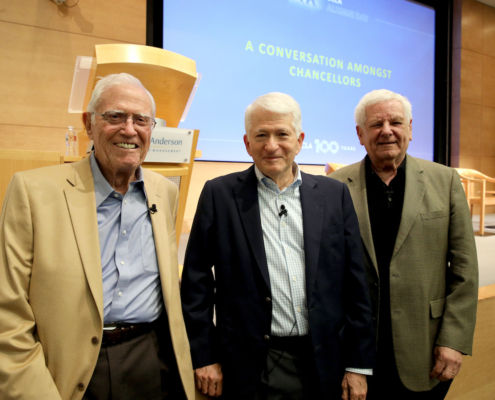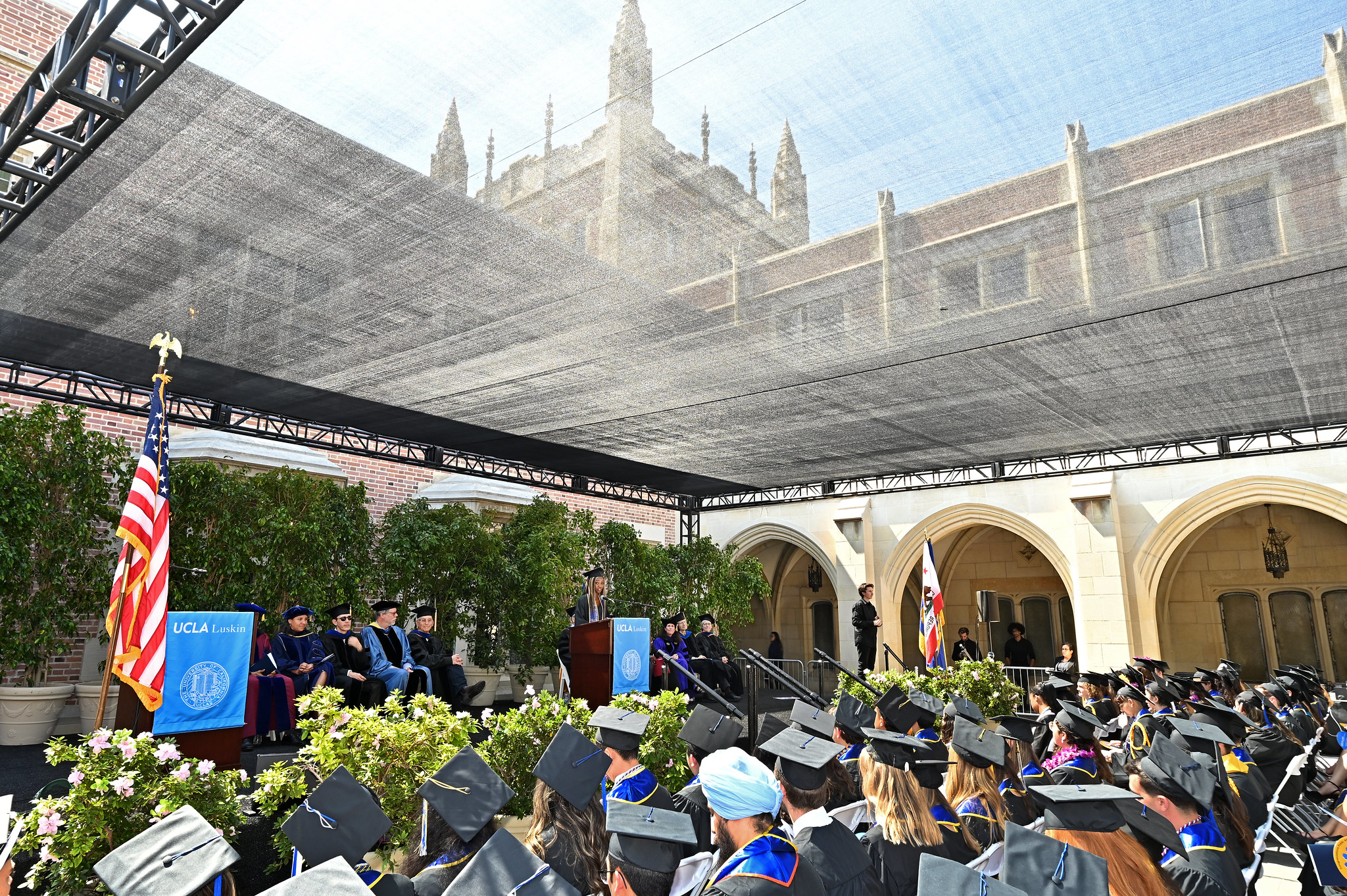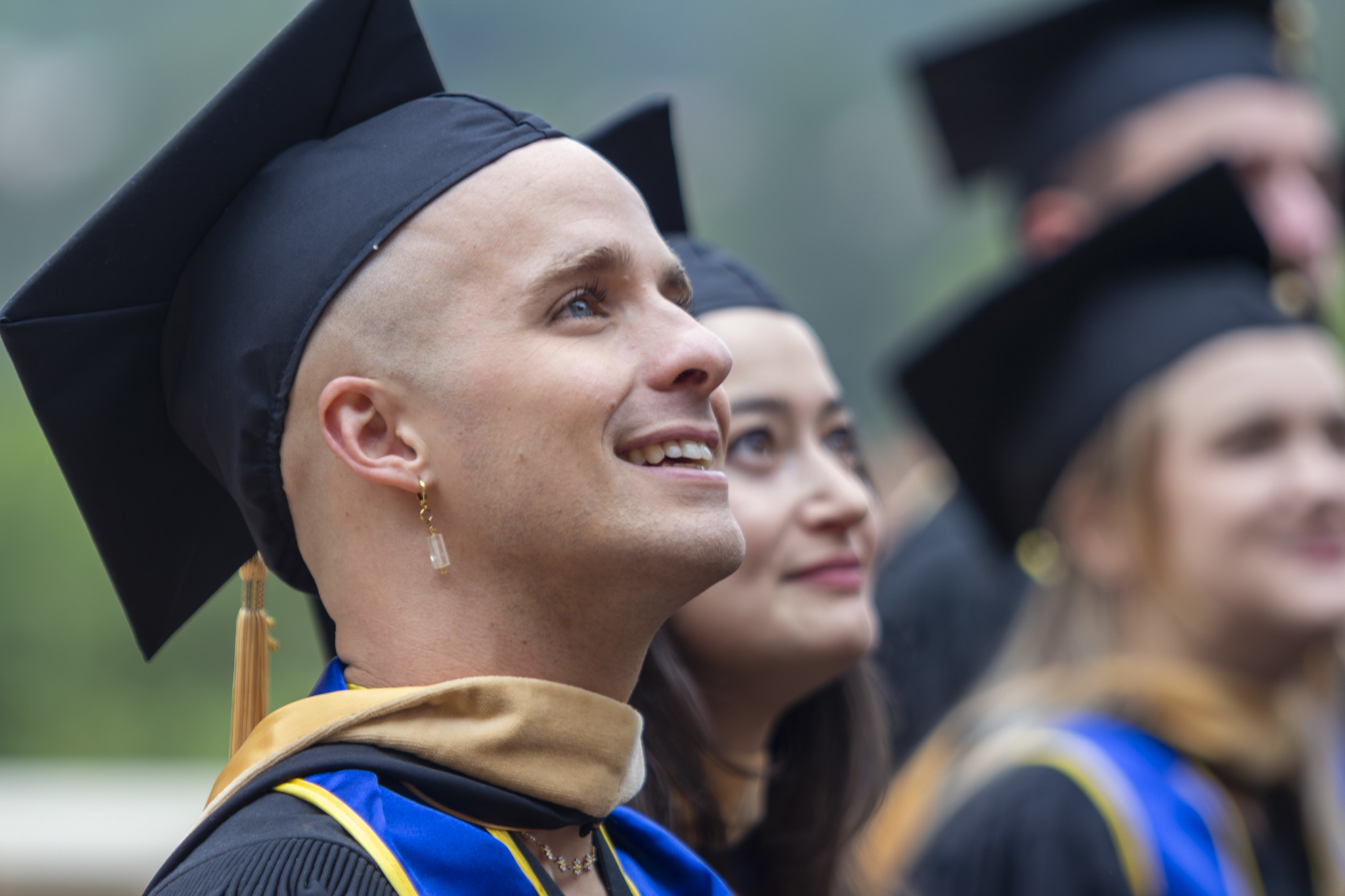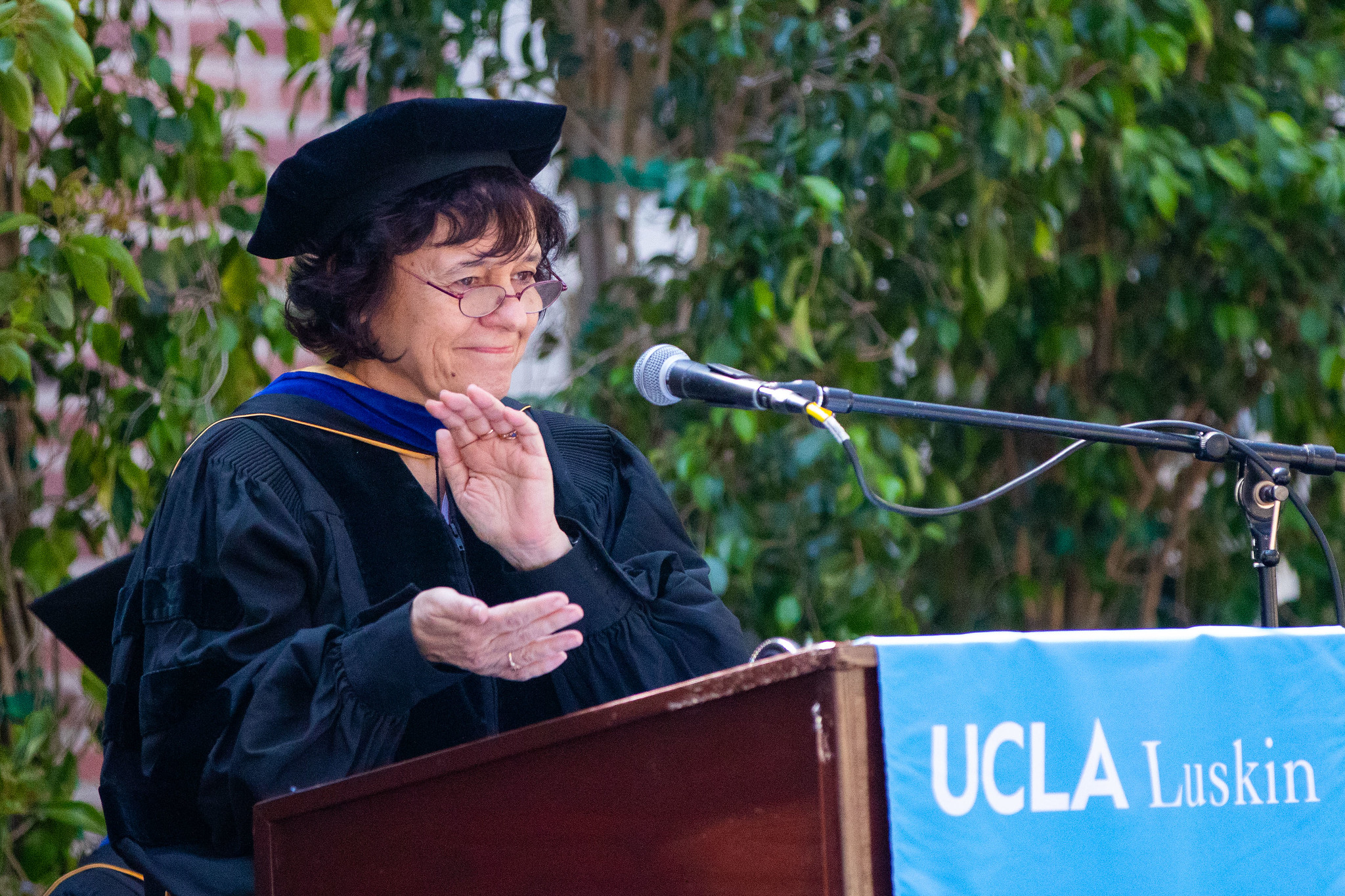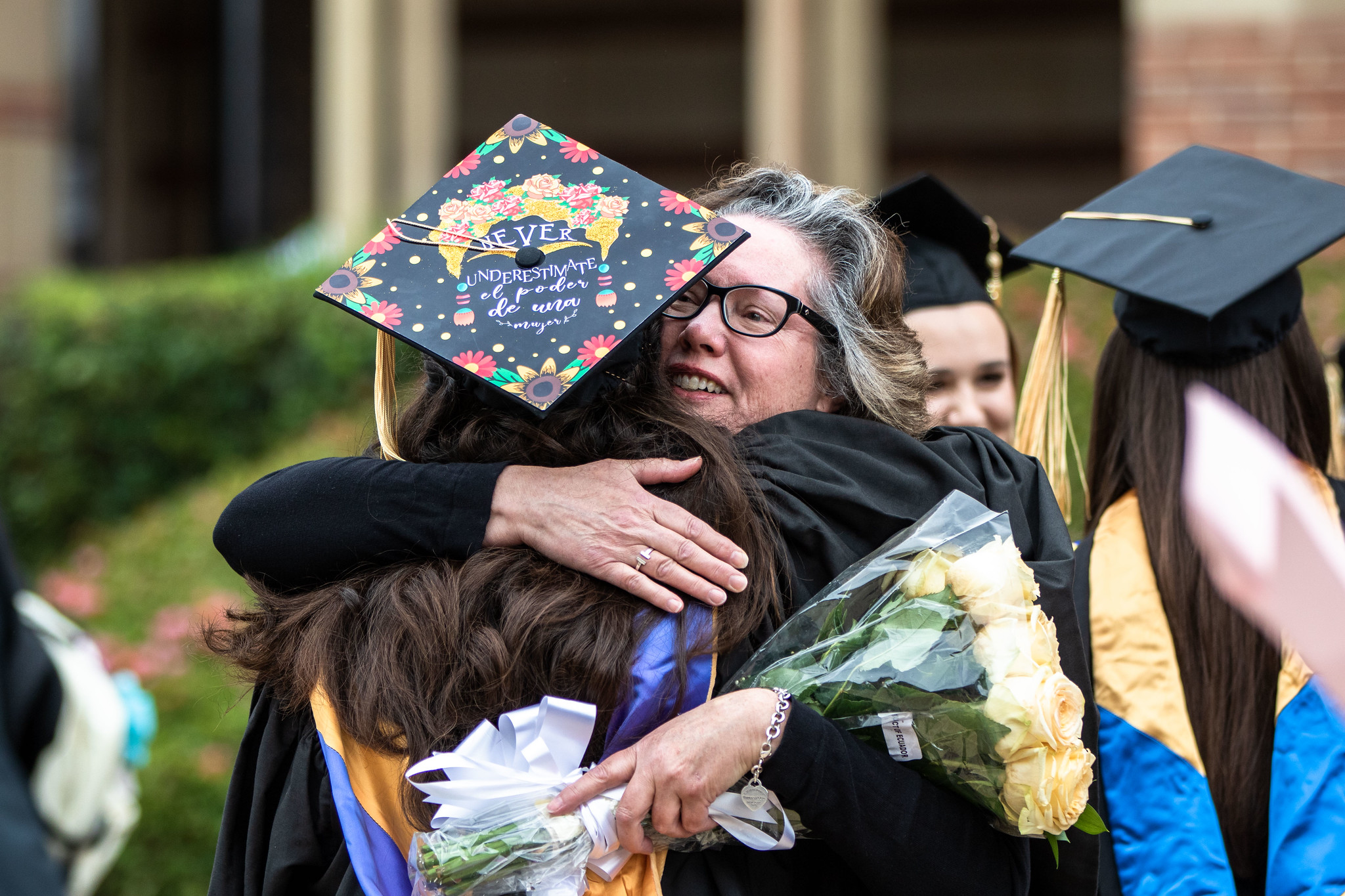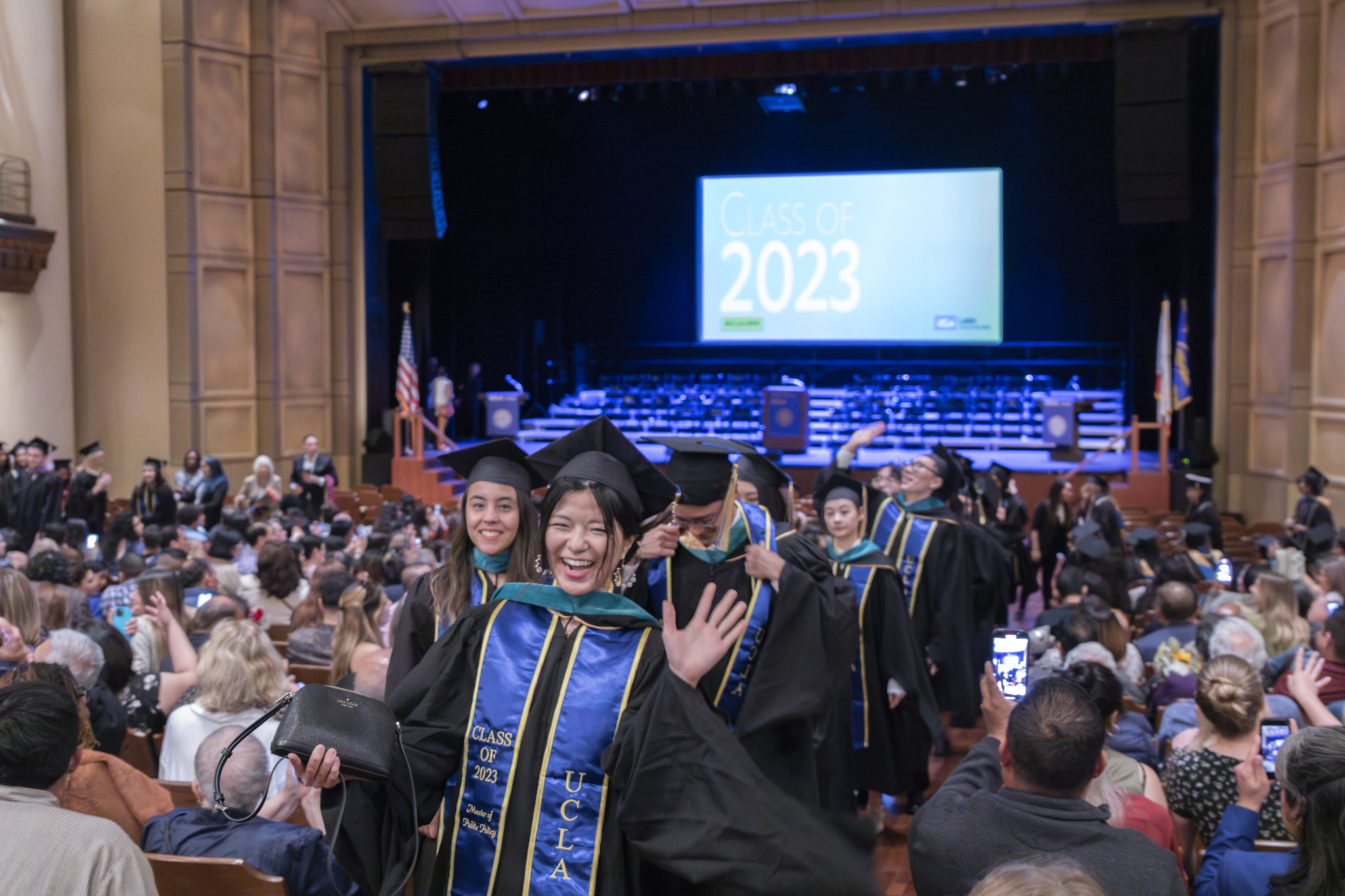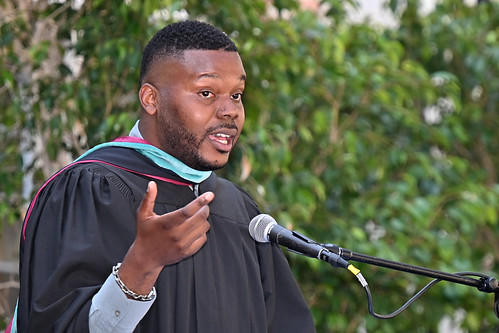Bruin Excellence in Civic Engagement Awards Recognize Public Service Leadership Eight with ties to the Luskin School are among 40 honored by the UCLA Alumni Association
A week to the day after starting her new role as Los Angeles Mayor Karen Bass’s chief housing and homelessness officer, UCLA alumna Lourdes Castro Ramírez traveled to campus for an occasion of utmost importance to the public servant of 30 years.
To say the double Bruin had a packed schedule that day might be an understatement. Besides being a week into her new job, Castro Ramírez was in the midst of relocation, having picked up her life in Sacramento to move to Los Angeles.
Castro Ramírez, one of 40 awardees being recognized by the UCLA Alumni Association for distinctions in public service, said despite her circumstances, she wasn’t about to miss the ceremony and networking reception for the Bruin Excellence in Civic Engagement awards.
“I’m really proud to be part of this first cohort with a number of distinguished alumni,” said Castro Ramírez, who had been serving as Gov. Gavin Newsom’s appointed secretary for the California Business, Consumer Services and Housing Agency since March 2020. “For me, the focus on civic leadership is really important.”
The award reception, which took place Nov. 13, included a certificate presentation and remarks from the association’s leadership. Darnell Hunt, the executive vice chancellor and provost at UCLA, also was in attendance. The honorees included eight Luskin School alumni: Castro Ramírez MURP ’96, Norma E. Fernandez MURP ’06, Oceana R. Gilliam MPP ’19, Rayne Laborde Ruiz MURP ’21, Teresa Magula MPP ’04, Veronica Melvin MPP ’01, Aaron Ordower MURP ’15 and Regina Wallace-Jones MPP ’99. Wallace-Jones was presented with her award during a speaking engagement on campus the week before.
‘Once you go to Luskin, you’re family for life.’ — Oceana R. Gilliam MPP ’19
The Bruin Excellence in Civic Engagement awards, which will be awarded to a new class annually, is the brainchild of UCLA Alumni Association board member Matt Kaczmarek. He said he was inspired by the association’s Bruin 100 awards, launched in 2022, which recognize alumni fostering positive social change in the private sector. Kaczmarek felt a comparable program for civic service was needed.
“People who devote their careers to public service generally don’t seek recognition for their work, even though their impact can be significant,” said Kaczmarek, who earned a bachelor’s degree in geography and political science with a minor in public affairs in 2005.
Having held senior appointments in the administration of former President Barack Obama and in the international finance division of the U.S. Treasury Department, Kaczmarek knows the gravitas of being in public service. He also served as White House liaison for John Kerry during the politician’s term as secretary of state.
“As a student at UCLA, I learned the opportunity to have the greatest impact comes through dialogue, listening and pragmatic problem solving,” Kaczmarek, now a director and global head of market strategy and sustainable investing for the asset management firm BlackRock. “I’ve met Bruins at all levels of government who consistently excel based on those same values.”
One of those Bruins is Gilliam, chief of staff for Tennessee state Rep. Justin J. Pearson. The Democrat gained national attention in April, when he and Rep. Justin Jones protested on the chamber floor in support of stricter gun-control regulations. A few months prior, Gilliam had led Pearson’s campaign to victory, focusing on policies to eradicate gun violence, alleviate poverty and enhance community safety.
Gilliam wears many hats in the civic realm, including serving as senior program manager for the Center for Justice Innovation, a nonprofit that strives for a more equitable criminal legal system. She’s proud of the work she does at the center, building alternatives to incarceration.
“Even at a young age, I’ve always had this servant leader’s heart,” said Gilliam, whose next endeavor is law school, a step toward fulfilling her childhood dream of being a criminal court judge. Gilliam said her family’s involvement with the criminal justice system has informed her career trajectory.
She was honored to be named an award recipient last month. Though she had planned to return to Tennessee following a business trip, she changed her flights to ensure a stop in Los Angeles for the reception.
“Once you go to Luskin, you’re family for life,” Gilliam said. It still strikes her when she’s on a video call with Los Angeles County for work — and she sees the face of one of her Luskin School peers on the other end.
“This recognition program not only brings more awareness to what UCLA grads or Luskin grads are doing, but what so many other people are doing in the field of public service and civic engagement,” she said.
At the reception, Gilliam caught up with fellow alumna Castro Ramírez, who earned her master’s degree in urban and regional planning from the Luskin School in 1996. Castro Ramírez has sustained a strong connection with the school, sitting on its advisory board as co-chair of the Equity, Diversity and Inclusion Subcommittee, where she helps students get support with fellowships.
“I benefited tremendously from the support that I received as a student,” said Castro Ramírez, who was the first in her family to attend college when she earned her bachelor’s degree in political science and Chicano studies at UCLA in 1994. “I think it’s important for us to continue understanding the needs and the support that is necessary for students of color and students of underprivileged or underrepresented backgrounds.”
Learn more about all 40 recipients of the inaugural Bruin Excellent in Civic Engagement awards and stay up to date about 2024 nomination submissions.
